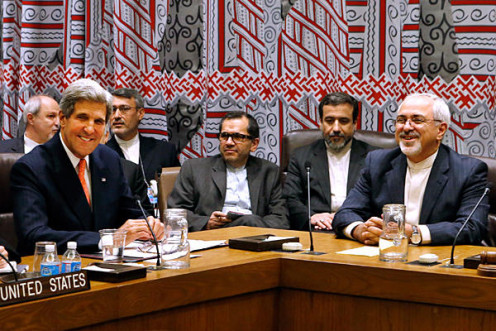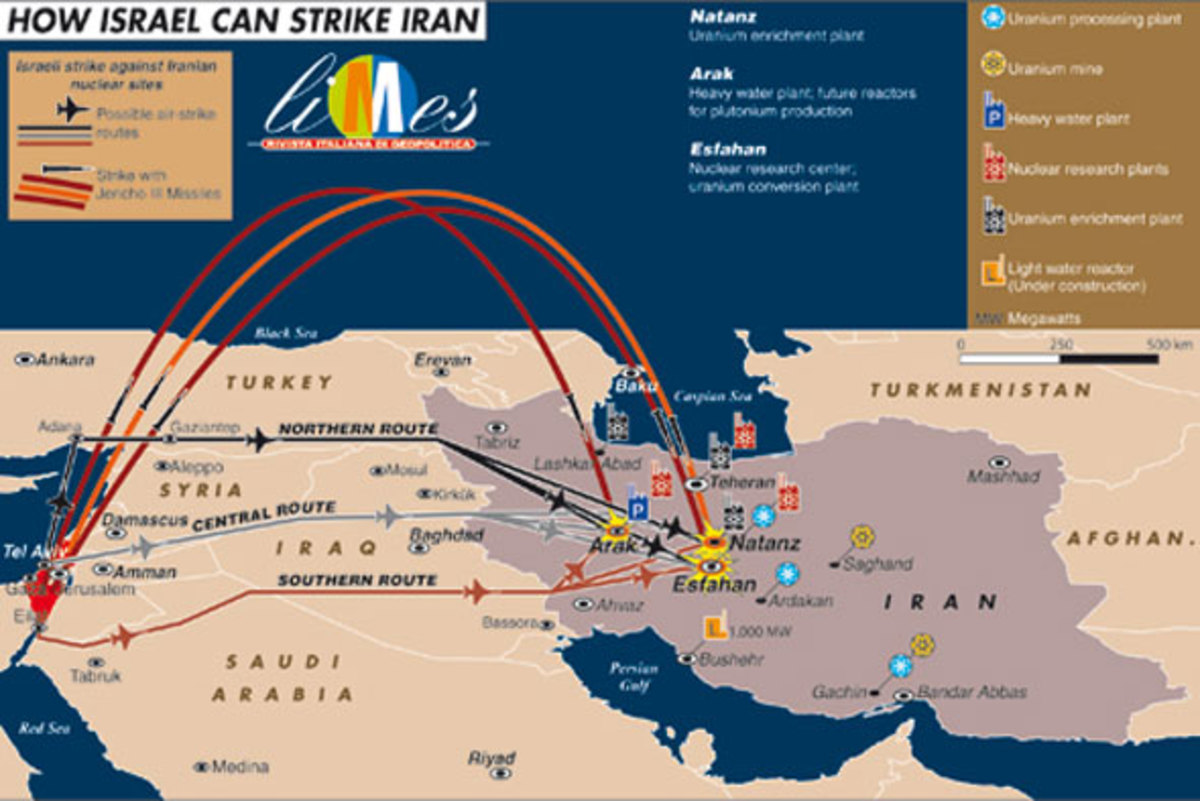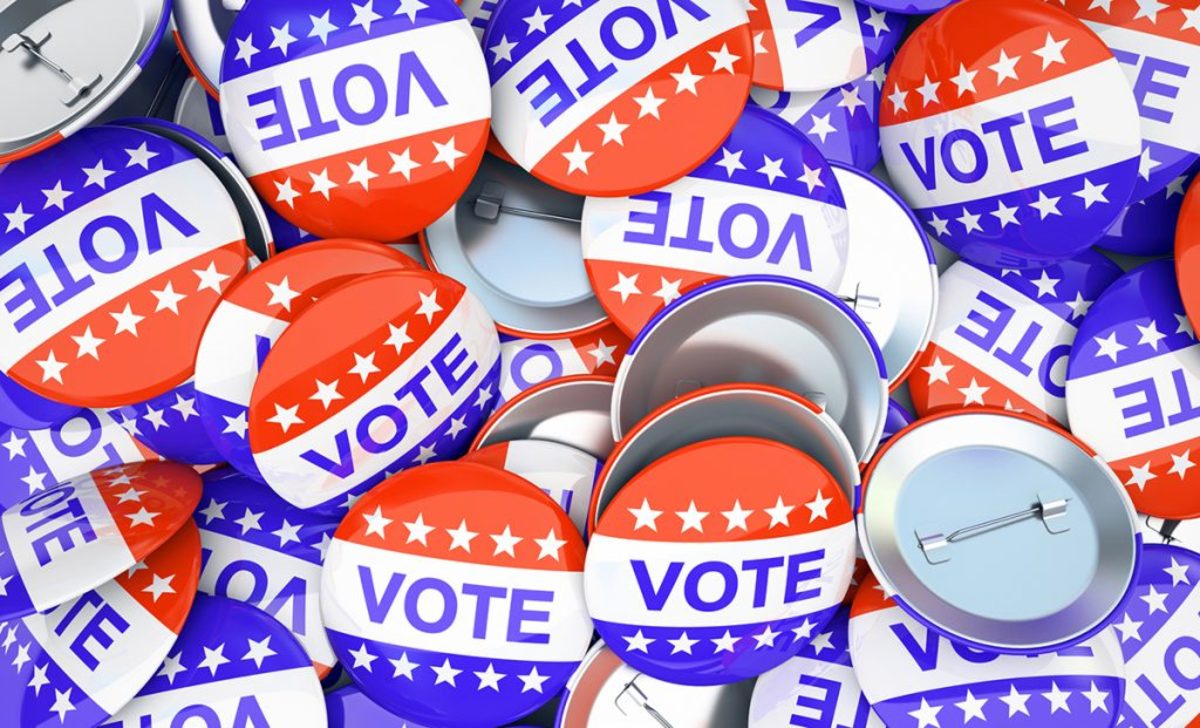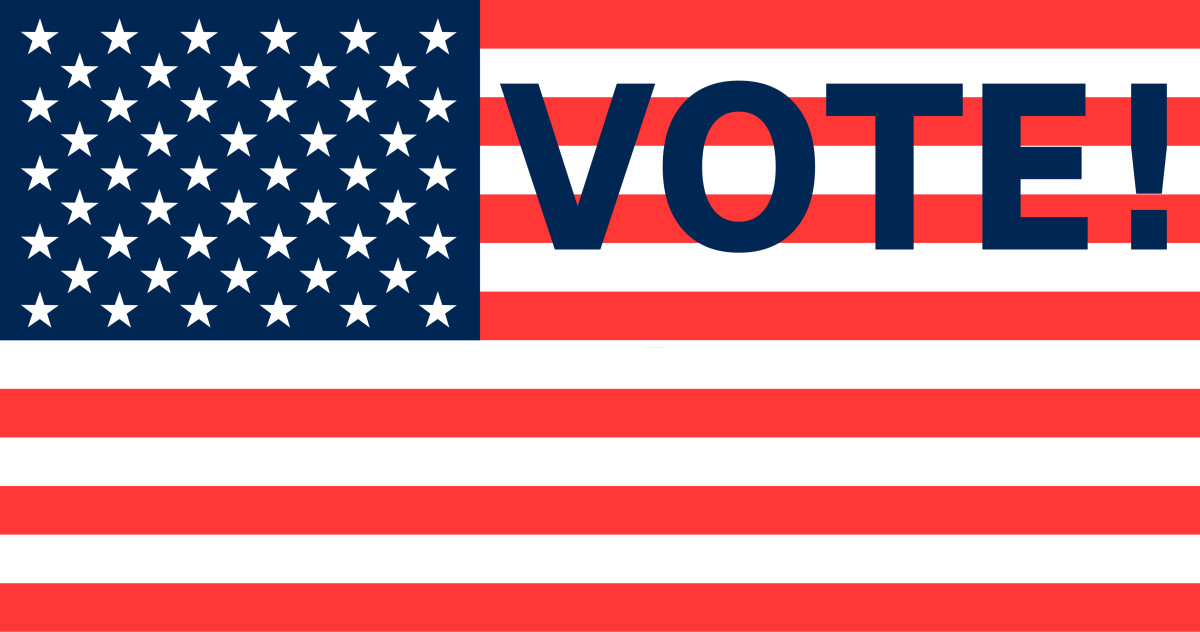American Politics: Another Poll Being MisReported, MisUsed, and Abused - The Iran Nuclear Deal
What the CNN/ORC POLL Said About the Iran Nuclear Deal
I REPORTED IN A PREVIOUS HUB REGARDING HOW THE POLLS ON OBAMACARE were misused and abused by the press and Conservatives. Well, I can report the same thing about the bold headlines, which "seems" to say 52% of Americans think the Iran Nuclear deal America, and five other countries, struck up with Iran to stop Iran's development of a nuclear capability is a terrible. Of course, on the surface it does say this ... at the top level of the survey; but, underneath the surface an entirely different story emerges.
A little bit of background. When someone conducts a poll, the pollsters generally must assume the people answering the questions are giving their most considered opinion, arrived at by a modicum of internal analysis of facts gathered from a variety of sources. (Although some surveys can actually correct for shaky answers.) Does this ability to give an issue the benefit of well thought out analysis, describe today's electorate? From what I have observed for the last 30 years or so, It does not. If many people really don't rely on reason a whole lot to arrive at their opinions is true, then can you trust the results?
Well. reality is that the more a person buys into the extreme end of either political spectrum, the less they rely on facts and multiple sources to form an opinion; while not constituting a majority of Americans, the number is not insignificant by a long-shot. Conversely, as one tacts toward the political center, the more reliable their answers become as to having a sound basis for them. So, how does this help us? It helps by taking this knowledge into account interpreting the poll results in light of this knowledge.

What Does The CNN/ORC Poll REALLY Say About How Americans Feel?
TO REPEAT, THE HEADLINES SAY 52% OF AMERICANS FEEL THE NUCLEAR DEAL which Secretary of State John Kerry struck with the Iranians to shut down their on-going nuclear program. Further, it says that 44% of those polled Agree with the pact and 5% aren't really sure one way of the other (probably the most correct opinion, given the current state of, or lack thereof, knowledge about the deal).
The next level of detail that the poll fortunately provides us is how that vote broke down by different demographics such as political party, ideology, income, education, etc. In the tables below, I offer these results followed by commentary about each.
Some Interesting, But Not The Most Important Poll Results
ANSWER
| MALE
| FEMALE
|
|---|---|---|
GENDER
| ||
Approve
| 46%
| 42%
|
Disapprove
| 50%
| 53%
|
No Opinion
| 4%
| 5%
|
TABLE 1 - GENDER
This surprised me somewhat. What this deal is supposed to provide is the feeling of security (including to Israel) and that the world stress-level will go down. In my opinion, women seem to 1) be a little more trusting and 2) gravitate toward those things that feel safe. Consequently, I would have guessed the male/female numbers would be reversed ... clearly my gut is wrong on this one.
RACE & OTHER
| WHITE
| NON-WHITE
| REGISTERED TO VOTE
| WHITE EVANGELICAL
|
|---|---|---|---|---|
Approve
| 40%
| 51%
| 44%
| 27%
|
Disapprove
| 54%
| 47%
| 51%
| 68%
|
No Opinion
| 6%
| 2%
| 5%
| 5%
|
TABLE 2 - RACE, REGISTRATION, & RACE-RELIGION
Not unsurprisingly, White Evangelical's, who constitute the backbone of the Conservative movement and opposition to President Obama, are the most opposed to any accomplishment, including this one, by the President. For a supposedly peace-loving, turn-the-other-cheek religious faith to stand in opposition to a non-violent, albeit potentially temporary in the long-term, package to stop Iran from obtaining a nuclear capability is very contradictory.
Likewise, Whites, for what are obvious reasons to me, also oppose President Obama more than they do support him. Consequently, it seems reasonable they would also oppose the results of Obama's negotiators simply because Obama supports it. Clearly, it is a small portion, maybe 10 - 20%, that are hard core anti-Obama types who will oppose whatever he is for. The rest, it is my guess, who oppose this pact with Iran do so because they simply don't think it is a good idea.
AGE
| 18 - 34
| 35 - 49
| 50 - 64
| 65+
|
|---|---|---|---|---|
Approve
| 53%
| 43%
| 42%
| 34%
|
Disapprove
| 41%
| 51%
| 55%
| 63%
|
No Opinion
| 6%
| 6%
| 3%
| 3%
|
TABLE 3 - AGE
Here, we see our first real divergence between cohorts of Americans. Consider how different the Millennials and Gen-X aged people are from the rest of the crowd. Why is that? One possibility is they are less interested in partisan politics and care about the issues. Generally, they are better educated than the last two age groups, and you will see in a minute, that distinction is important. Also, from what I have read, Millennials and Gen-Xers are oriented to the Left, although it does seem they aren't all that motivated to vote.
EDUCATION & INCOME
| NO COLLEGE
| ATTENDED COLLEGE
| UNDER $50K
| OVER $50K
|
|---|---|---|---|---|
Approve
| 37%
| 49%
| 43%
| 48%
|
Disapprove
| 61%
| 45%
| 54%
| 47%
|
No Opinion
| 2%
| 6%
| 7%
| 5%
|
TABLE 4 - EDUCATION and INCOME
Once more we see differences appearing between the two education and income cohorts. We see that the more education a person has, the more likely they are to think the Iran Nuclear package is a good idea. This, of course, goes to my theory that the more a person analyzes an issue, the more likely they are to give a personal answer as opposed to a learned response.
There is less of a difference when considering those who make less than and more than the median income. To me, the same dynamics are at work because those making more money often are people who are more likely to read, listen, and think for themselves than those who are struggling just to live a nice life.
In both of these cases, I am not suggesting that if people have more education or higher income are prone they are prone to see the deal in a favorable light or not. I am just saying that when asked a question, they are more likely to give a reasoned answer.
The Real Interesting Table - Political and Ideological Persuasion
PARTY and IDEOLOGY
| DEMOCRATIC
| INDEPENDENT
| REPUBLICAN
| LIBERAL
| MODERATE
| CONSERVATIVE
|
|---|---|---|---|---|---|---|
Approve
| 61%
| 40%
| 31%
| 64%
| 47%
| 28%
|
Disapprove
| 36%
| 55%
| 66%
| 33%
| 48%
| 67%
|
No Opinion
| 3%
| 5%
| 3%
| 3%
| 5%
| 5%
|
TABLE 5 - PARTY and IDEOLOGY
THIS IS THE REAL STORY!! THE TAKEAWAY HERE is that, as expected, Democrats/Liberals strongly support the deal and Republican/Conservatives strongly oppose it. Independents, who tend to lean Right more than they do Left, are more likely to disapprove. But Moderates, who by definition, are near the middle are basically split on whether they approve or not.
So, what is pushing the disapproval over the edge? To me, it looks like 1) the independents are biased to the Right and are listening to their messaging, 2) there are more conservative Democrats than there are liberal Republicans, and 3) there are about twice as many far-Right Conservatives who parrot their Party tune, than there are far-Left Liberals who do the same. Likewise, it appears there are more Right-leaning Independents who accept bumper stickers and sound-bites as their information source than there are Left-leaning Independents.who do the same.
The bottom line of all of this is that there are fewer people on the Right (weighted by those without college degrees and less than $50K in income) who think for themselves than there are on the Left (weighted toward college degrees and higher income). Consequently, when you factor out those who answer the Party lines, you end up with a core group that favor the Iran Nuclear pact, rather than oppose it.
Ideological Breakdown By Party
DEMOCRATS
| INDEPENDENTS
| REPUBLICANS
| ||
|---|---|---|---|---|
LIBERAL
| 12%
| 8%
| 2%
| 22%
|
MODERATE
| 13%
| 18%
| 6%
| 37%
|
CONSERVATIVE
| 6%
| 11%
| 17%
| 34%
|
31%
| 37%
| 25%
| 93% (7% Undecided)
|
TABLE 6 - PEW RESEARCH
This is an interesting table in that it shows you what percentage of the respondents were Liberal Democrats (12%), Liberal Republicans (2%), or Conservative Democrats (6%), for example. Here are a few take-aways:
- While 31% of respondents were Democrats, only 22% considered themselves Liberal.
- On the other hand, 25% of those question identified with the Republican Party, 34% thought of themselves as Conservative.
- As I mentioned earlier, those that identify as Independents lean toward the political Right (11%) vs the political Left (8%)
- Finally, this data suggests that Liberals are in the minority in America today.
So, What Is The Surprise I Mentioned?
AT THE TOP, I ASSERTED THE FOLLOWING - "... but underneath an entirely different story emerges." ... meaning the headline that 52% of Americans disapprove of Obama-Kerry Iran Nuclear Deal is misleading and does not represent what America really are thinking at the time the poll was taken. Now, as I do with most of my Hubs, I conduct my analysis as I write the Hub. As a consequence, I sometimes get surprised by the answer I come up with. I must say, however, I have only had to change my mind once and discuss the opposite of what I thought was correct analysis; which I duly reported.
A couple of other times I had to modify, but not really change my main thesis. The Gun series is an example where I had bought into the Hub the belief by both the Right and the Left that the rate of gun ownership effects violent crime - the Right says it reduces it and the Left says it increases it - yet my analysis resulted in there being very little relationship. Fortunately, that wasn't my main point, which stayed the same.
When I started this Hub, my gut said that when you dig beneath the poll numbers and add reality regarding how people answer poll question, I thought (maybe hoped) the results would reverse the outcome with more "thoughtful" people thinking the Deal ought to be approved ... no cigar, but I got close.
With much math, like solving three equations with three unknowns, I was able to discover the following: there is no statistical difference between those who favor (45%) and those who oppose (48%) the Agreement. The actual, reported results were a very much different, statistically significant 52% - 44%.
So, how did I accomplish this miracle? It all has to do with what I tried to explain earlier - that people will answer questions like these based on one or two things. thoughtful consideration or listening to sound bites and talking-heads or reading bumper stickers. I pointed out the more you slide to one extreme or the other, the more likely you are to spout, and answer, to the Party line.
What I did then was make a gross assumption, which I believe is reasonably close to the truth, that if I throw out liberal-Democratic and conservative-Republican responses, on the theory that these respondents haven't thought a whole lot about the issue, then the remaining answers represent a considered opinion. When I did this, I got the above results that, in my opinion, much more fairly represent what Americans really think about this issue; 45% in favor, 48% opposed, and 7% unsure.
AND. YOUR OPINION IS?
Do YOU Think The Agreement Reached Between The Five Allies + 1 With the Iranians to Halt Their Nuclear Program is Good for the World?
IF YOU Answered 'YES' to the Above Question, Do You Think ....
DEMOGRAPHIC SURVEY #1
Politically Speaking, Do You Think You Agree With The ...
DEMOGRAPHIC SURVEY #2
Are You
This content is accurate and true to the best of the author’s knowledge and is not meant to substitute for formal and individualized advice from a qualified professional.
© 2015 Scott Belford








